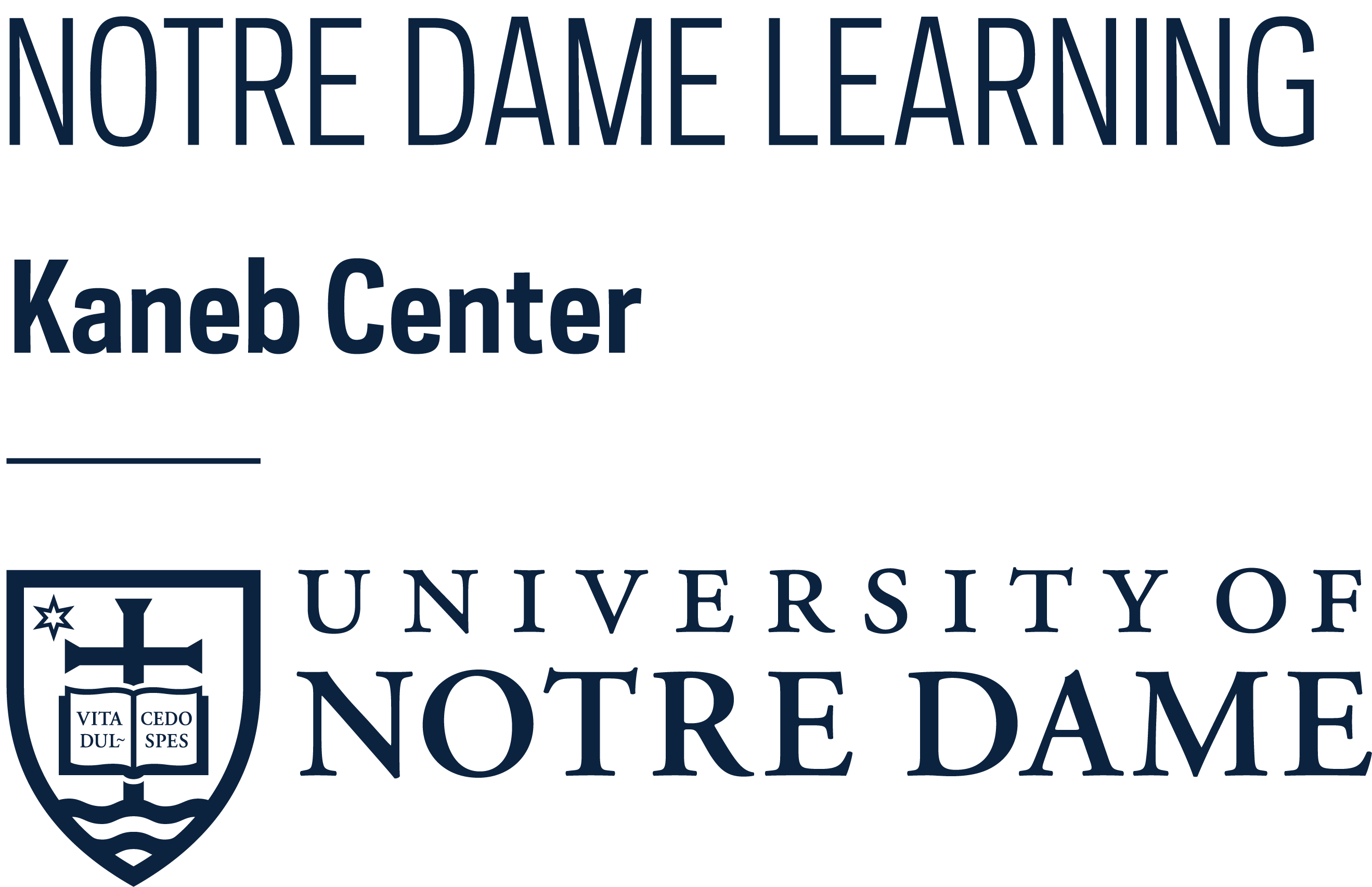In our Faculty Feature series, the Kaneb Center interviews teachers around campus to learn about what motivates them, discuss techniques they use in their classrooms, and share bits of wisdom with others in the Notre Dame community and beyond! This edition, we feature Mike Seelinger from the Department of Aerospace and Mechanical Engineering.
Tell us a little about yourself.
I am an Associate Teaching Professor in the Dept. of Aerospace and Mechanical Engineering. I grew up in North Palm Beach, Florida. Back in 1990, when I left Florida for my freshman year at Notre Dame I had no inkling that I would spend so much of my life at Notre Dame. Like many first year students I chose to study engineering because many of the people in my life thought it would be a good match: I was good at math and science and enjoyed learning how things work. They were right; mechanical engineering has been an excellent match. In the summer before my senior year at Notre Dame, I had the good fortune to befriend one of my professors who has served as an excellent mentor over the years. He opened my eyes to the possibility of graduate school and a career in academia. I earned my B.S., M.S., and Ph.D. in mechanical engineering all at Notre Dame. Upon graduation I spent a number of years in the entrepreneurial world as a part owner of a small business engaged in research and development in the area of robotics and automation. I also spent five years on the faculty at the University of Illinois Urbana-Champaign as a visiting instructor and course coordinator. I returned to the South Bend area in 2006 and joined the faculty at Notre Dame in 2009.
Why did you decide to become a teacher?
As far back as high school I knew I really enjoyed teaching. During high school and college I served as a volunteer tutor. I enjoyed the interaction with students and the empowering moment when a student understands a new concept and begins to gain confidence. During college I developed my passion for learning how things work and grew to love engineering. It seemed a natural fit to try to combine my passion for teaching with my passion for engineering. Fortunately, during my senior year several of my professors gave me the confidence boost needed to pursue a career in academia. Even when I stepped out of the academic tract, I managed to satisfy my passion for teaching as a part-time visiting instructor at the University of Illinois. Over the years I realized that the work I found most meaningful was teaching. I am thrilled that I now get to carry out this work full-time.
In what ways do you find teaching rewarding or meaningful?
I find that the friendships I have built with my students have been the most rewarding aspect of teaching. I think that the years that a person spends in college are some of the most interesting and formative years in one’s life. The students have such energy, enthusiasm, and passion for pursuing their ideals. I find it very rewarding to try to have a small, positive role during such a meaningful time in their lives. I enjoy teaching the students during their first two years at the university. In addition to helping them build a solid foundation in the knowledge that they will need for their upper-class engineering courses, I hope that I help them develop the good habits that students need to be successful in their studies, but more importantly in their future lives. Every time a former student reaches out to me to tell me how their life is going or how some lesson they learned in college has helped them in a particular way I am filled with a feeling of deep satisfaction that my educational efforts have borne fruit.
Describe one teaching technique you like to use in your classes.
I certainly would not claim that this practice is unique to me, in that I was inspired to develop my current practice of class exercises by one of my mentors. I find that a student does not really understand and learn a concept until they have had to wrestle with it themselves. Applying the concept on their own to a new problem often accelerates the learning process. This is one of the main reasons for assigning homework problems. Often the lag between when a student learns a concept in the lecture and when they have to apply it in their homework is so great that the two learning opportunities are not linked together. Many years ago I started the practice of having the students engage in “class exercises” during some of the lectures. Right after new material is presented, the students must apply the concept to a new problem. My class exercises are graded only on effort: so long as a student tries to do the class exercise they receive full credit. I find this engages the student in a learning opportunity without the stress that comes with a graded quiz. During the class exercise the students can talk to each other and work on the problem together, which usually facilitates learning. In the many engineering courses I have taught (and even taken as a student), I find that students often disengage half-way through the lecture. So the class exercises have the added bonus of breaking up the class and helping students to re-engage. I have found this practice of class exercises to be a way of promoting learning retention, increasing classroom engagement, and motivating students to be present and attentive during lectures.
What advice would you give to a new teacher?
To be an effective teacher one has to promote an environment conducive to learning. I believe that the single most important factor to creating this environment is that teacher must truly care about their students and the students must perceive that the teacher cares about them. When a student feels that their teacher really cares about them as a person, that student tends to be much more engaged and invested in the course, even if they do not particularly enjoy the material. The challenge for the instructor is how to convey the care and concern in a meaningful yet not ostentatious way. On a personal level this is manifested in treating each student with a great deal of respect and refinement. During office hours it is important to really listen to students and make them feel comfortable. In the classroom it means making policies that the students find fair. Sometimes it means changing the due date on a homework assignment because you recognize how many other assignments the engineers have due during the same week. Most teachers would be amazed at what message such an action sends to their students: that the professor understands the students’ predicament, cares about their perceived hardship, and wants them to have the time to complete their homework well (meaning it will be a better learning opportunity).
In your opinion, what makes a great teacher?
A great teacher is one who truly cares about their students and is fully invested in the educational experience. A great teacher should always remain a student in that the teacher is constantly looking out for how to improve their teaching skills, be more effective at explaining concepts, and willing to try new things in the classroom to improve their courses. A great teacher feels deep satisfaction at seeing their students grow and mature, knowing that they have played their small but important role in the lives of so many people.
Thanks, Mike!
